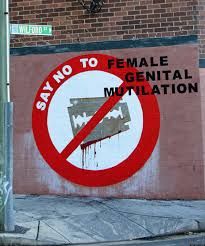Sex
The Privilege of Sexual Freedom
Let's work for a world where sexual freedom is a human right held by all.
Posted July 4, 2015
Today is the fourth of July, a day that Americans celebrate our country’s freedom with friends and family, watching elaborate firework displays. It would have been relatively easy—albeit cliché—to blog about creating fireworks in your sex life. Instead, I’ve decided to raise awareness of individuals who suffer from a lack of sexual freedom, and to encourage those who have such freedom to appreciate it for the privilege that it is.
One issue most germane to a complete lack of sexual freedom, both nationally and globally, is sex trafficking. According to Polaris, sex trafficking “is a form of modern slavery that exists throughout the United States and globally.” This same website informs readers that “Sex traffickers use violence, threats, lies, debt bondage, and other forms of coercion to force women, men and children to engage in commercial sex against their will.”
Who are the victims of sex trafficking? Again, according to Polaris, “U.S. citizens, foreign nationals, women, men, children, and LGBTQ individuals can be victims of sex trafficking. Runaway and homeless youth, victims of domestic violence, sexual assault, war or conflict, or social discrimination are frequently targeted by traffickers.”
Even more striking are the statistics provided by Polaris. In 2014, the National Human Trafficking Resource Center hotline received reports of 3,598 sex trafficking cases inside the United States. In this same year, the National Center for Missing & Exploited Children estimated that 1 in 6 endangered runaways reported to them were likely sex trafficking victims. Finally, during 2014, the International Labor Organization estimated that there are 4.5 million people trapped in forced sexual exploitation globally.
The Polaris website is full of other shocking and pertinent information, including a section on what YOU can do, including (but not limited to) raising awareness through reading a book or watching movies on the topic, buying products made by survivors, and signing a petition. Certainly, hosting fundraising events or making direct contributions to organizations dedicated to ending sexual slavery are also an action that can be taken.

Certainly, no discussion of sexual oppression would be complete without drawing attention to female genital mutilation (FGM). There are over 160 million women alive today who have had some part of their clitoris removed. Strikingly, about 500,000 of these women live in the United States. There are several organizations aimed at putting an end to FGM. One organization, Clitoraid, provides medical training and funds so that victims of female genital mutilation can have their clitoris surgically rebuilt. They are working on building a hospital in West Africa, which will offer free medical services for the physical restoration and rehabilitation of female genital mutilation victims. They sponsor a Clitoris Awareness Week to bring attention to female genital mutilation and to raise funds for their cause.
Sexual freedom exists on a continuum. While sexual slavery and female genital mutilation exist on the extreme end of the continuum, there are ranges of constricted sexualities in between. The Woodhull Sexual Freedom Alliance work on many of these issues, including (but not limited to) LGBTQI rights, sexual health rights, and the freedom of sexual speech.
My work mainly focuses on empowering women to achieve sexual satisfaction and orgasm through the provision of accurate knowledge. Two of my recent blogs (70 Percent & Linguistic Sexual Revolution) focused on empowering women with knowledge of the clitoris, the very organ that the Clitoraid is helping victims of FGM to restore. I am mainly working to empower otherwise free women to orgasm, while Clitoraid has the goal of “empowering FGM by helping them reach their first orgasm.”
When I wondered aloud to a friend about if my work was meaningful enough given issues such as sexual slavery and female genital mutilation, she reminded me that sexual freedom is a privilege. She encouraged me to remind those that I help to embrace their sexuality what a privilege such sexual freedom is. This Fourth of July, as you watch the fireworks and celebrate our country’s freedom, please remember that sexual freedom is a human right that not everyone has. Please appreciate your freedom and at the same time, consider helping those who don’t have this freedom. Let’s work towards a world where sexual pleasure and freedom are a human right held by all.


